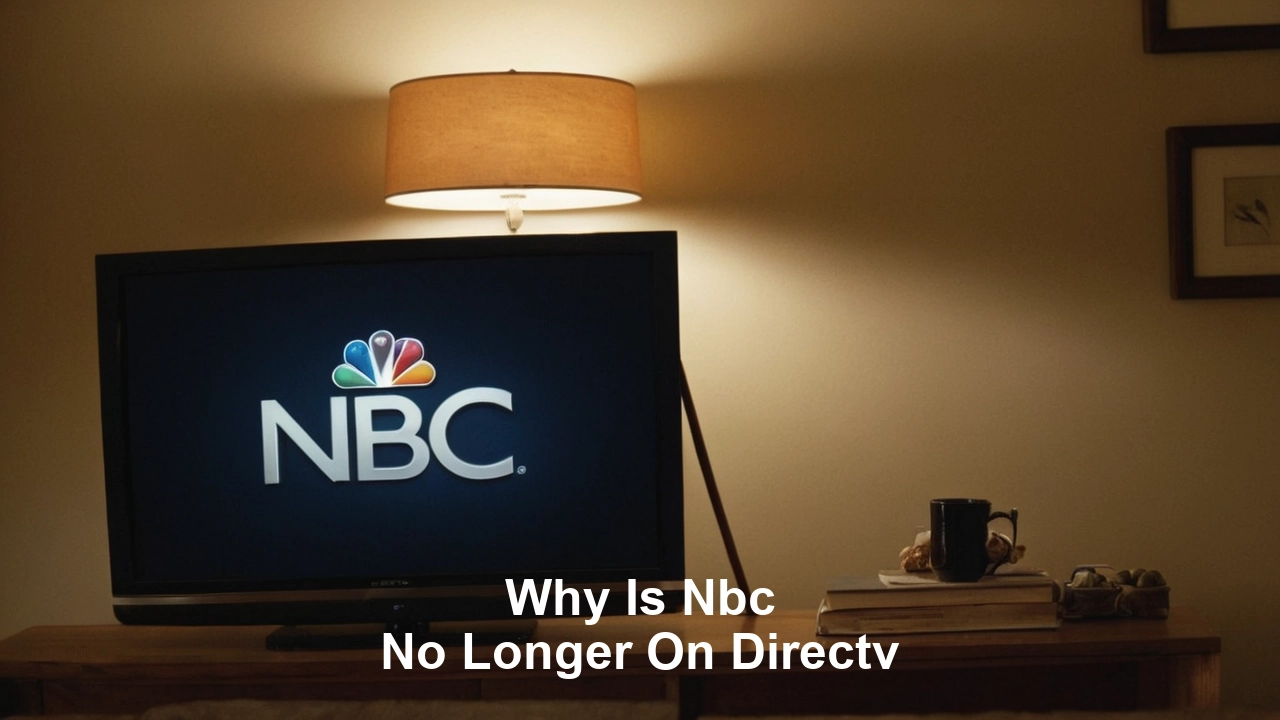Why is NBC no longer on DirecTV?
Carriage Dispute: NBC Dropped From DirecTV
For instance, in October 2022, NBC networks were pulled off DirecTV’s channel lineups across the country as a result of a carriage dispute. This was the first situation in US history when a major broadcast network was blacked out from a TV provider due to the lack of retransmission consent. Hence millions of DirecTV customers were barred from watching favorite NBC shows such as Sunday Night Football, This Is Us, The Voice, etc.
The Carriage Dispute Explained
The antecedents of the conflict were the fees that Comcast, NBC’s parent company, was demanding for DirecTV to broadcast its local NBC and Telemundo broadcast stations. The retransmission consent fees have also emerged as a major point of conflict in the recent past as the broadcasters sought to compensate for the dwindling advertising revenues by seeking more dollars from cable and satellite providers.
Such arrangements are normally renewed without interference. However, negotiations ceased on this occasion as the earlier contract came to an end. DirecTV refused to accept what it termed NBC’s’ unreasonable demands for'massive fee increases’ at a time when ratings were dropping. In the meantime, NBC stated its increased investment in programming entitles it to fair compensation. Both sides accused each other of the breakdown of negotiations.
Lastly, DirecTV could not agree to the terms of the offer presented by NBCUniversal either. However, by FCC rules, NBC stations had to be pulled out of the channel packages until a new agreement was made.
Impact on Subscribers
This blackout affects an estimated 19 million satellite customers across the United States who are unable to watch NBC and Telemundo. This not only limits access to NBC’s owned and operated station and top programs, but also local NBC stations and key events such as NFL football, the Macy’s Thanksgiving Day Parade, and the Beijing Winter Olympics.
Some of the complaints received by the FTC involved the element of surprise that customers felt when they received higher bills while being locked out of major networks they depended on for information and entertainment. Some of the people who complained more, especially football fans, were angered by the timing during the NFL season. And the NBC blackout demonstrated how retransmission disputes adversely affect consumers, who end up bearing the brunt of the battles between the media companies.
The incentive to resolve this is on both sides due to the backlash. However, as negotiations stall, viewers are left looking for NBC content on other platforms, such as broadcast antennas or online platforms.
Efforts to Restore NBC
DirecTV said that it is doing everything to reach an agreement and get the NBC networks back. The company states that it needs to charge reasonable prices so as not to overcharge the consumers with additional costs. It apologized for the interruption while calling on NBC so that fans do not miss more NFL games.
NBC also stated that it also aims to get its programming aired again for DirecTV subscribers. But it said the ball is still in DirecTV’s court to accept carriage terms it considers appropriately value its broadcast and cable content.
Some politicians have even chimed in. About forty-two Congressional leaders penned an open letter calling on both parties to return to the negotiating table with a view to quickly resolving this matter. They said that both broadcasters and TV providers have important roles in ensuring that the public is informed on news and entertainment. Firms have said that a deal might be reached at any time as the talks progress is ongoing. However, the longer this continues, the more frustrating it is for the targets that have subscribed to it.
Carriage disputes become more frequent.
However, retransmission consent battles have become more common in the last couple of years due to rising programming expenses and fees charged by cable and satellite companies. Blackouts are not uncommon among giants such as CBS, Fox, and Univision, and Sinclair uses the tactic during negotiations with the providers. Even last year, it recorded a 50 percent increase in disputes.
However, these battles over licensing deals can at times turn nasty for the media executives that are involved. Companies attempt to gain leverage by pushing or pulling channels, airing attack messages, or mobilizing public opinions. Customers lose access and pay more whether deals are made or not for the subscribers.
As the prices charged for running the popular networks skyrocket, more cases of the dispute surface. Others argue that the retransmission consent model is flawed and provides broadcasters with undue influence. But networks argue that they are only making a fair recompense for the high-quality content.
Regulators have contemplated some modifications, but no radical changes are expected anytime soon. So, media consumers should be prepared for even more turbulence in the future as large corporations argue over payment. Loyal viewers have often suffered massive losses as the spoils of these battles.
The Takeaway
The stripping of NBC from DirecTV is one of the many examples of how retransmission disputes between programming owners and television distributors affect paying audiences. When the corporate giants cannot come to agreed financial terms, then broadcast signals are jammed and the customers are the losers. This NBC fight is just one more disappointing instance of viewers being placed in the middle of corporate disputes. The parties involved should endeavor to come to a resolution soon so that DirecTV customers can get their NBC entertainment, news, and sports back. But as programming costs increase, carriage disputes and channel blackouts will only persist in the future.
Join the satellite TV revolution today! Call (469) 213-7481 to sign up for affordable, high-quality TV!


